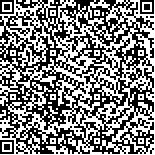| 摘要: |
|
| 关键词: |
| DOI:10.1007/s11768-010-9194-8 |
| Received:September 10, 2009Revised:September 10, 2009 |
| 基金项目:A*Star SERC ( NO.052 101 0037 , 0521210082) |
|
| Energy-efficient adaptive sensor scheduling for target tracking in wireless sensor networks |
| Wendong XIAO,Sen ZHANG,Jianyong LIN,Chen Khong THAM |
| (Institute for Infocomm Research;National University of Singapore;Nanyang Technological University) |
| Abstract: |
| Sensor scheduling is essential to collaborative target tracking in wireless sensor networks (WSNs). In the
existing works for target tracking in WSNs, such as the information-driven sensor query (IDSQ), the tasking sensors are
scheduled to maximize the information gain while minimizing the resource cost based on the uniform sampling intervals,
ignoring the changing of the target dynamics and the specific desirable tracking goals. This paper proposes a novel energyefficient
adaptive sensor scheduling approach that jointly selects tasking sensors and determines their associated sampling
intervals according to the predicted tracking accuracy and tracking energy cost. At each time step, the sensors are scheduled
in alternative tracking mode, namely, the fast tracking mode with smallest sampling interval or the tracking maintenance
mode with larger sampling interval, according to a specified tracking error threshold. The approach employs an extended
Kalman filter (EKF)-based estimation technique to predict the tracking accuracy and adopts an energy consumption model
to predict the energy cost. Simulation results demonstrate that, compared to a non-adaptive sensor scheduling approach, the
proposed approach can save energy cost significantly without degrading the tracking accuracy. |
| Key words: Wireless sensor network Target tracking Sensor scheduling Extended Kalman filter Energy efficiency |

